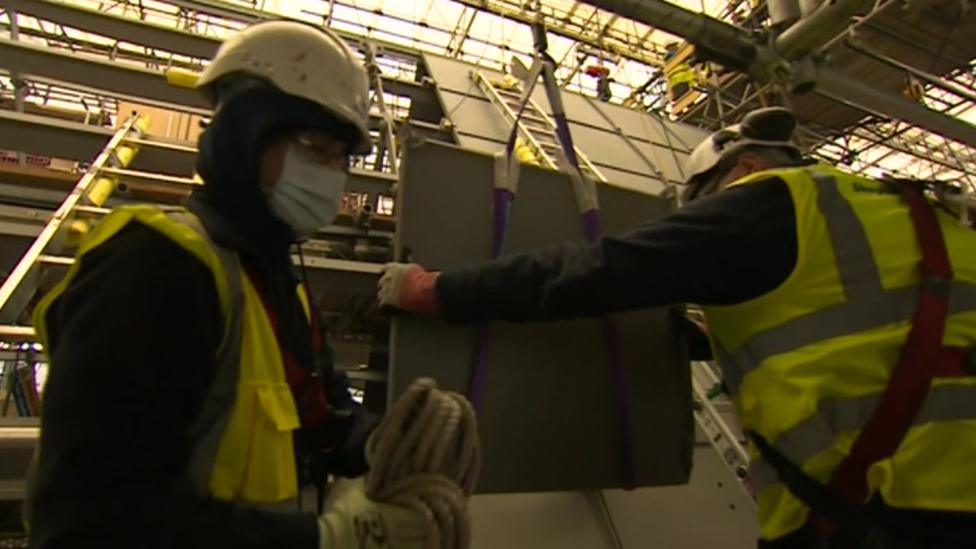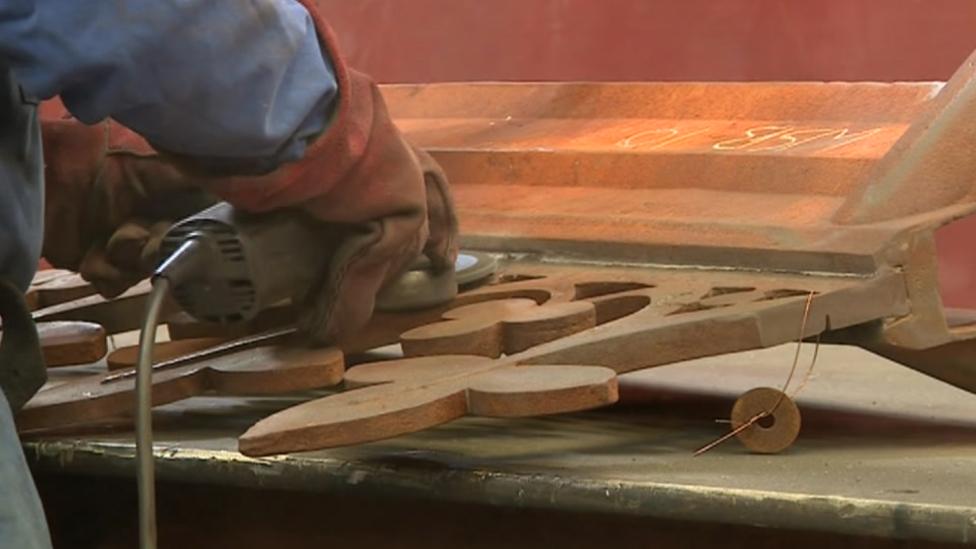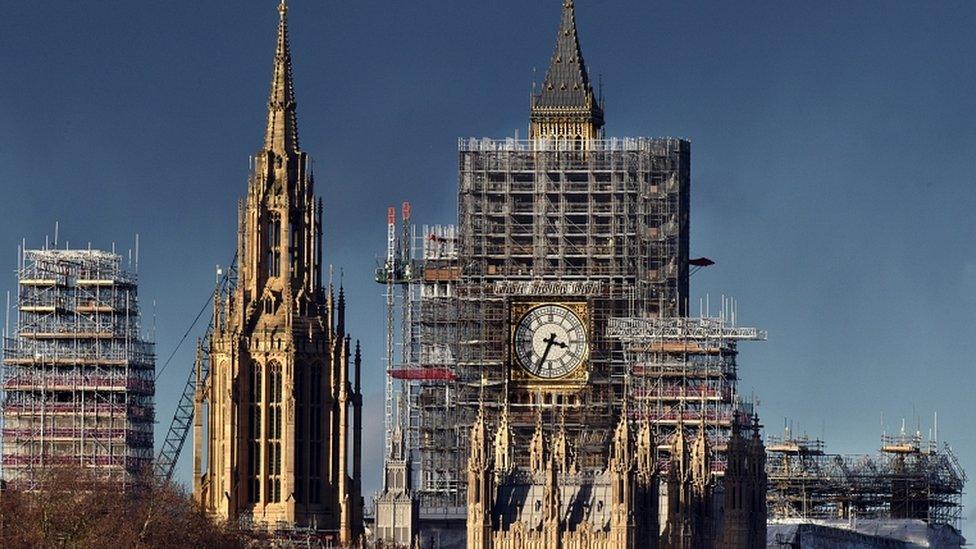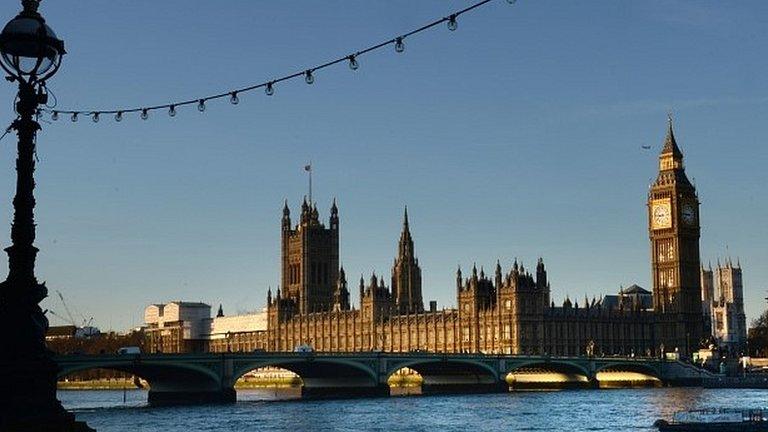Sheffield firm nears end of decade-long work on Parliament's roof
- Published

Thousand of tiles and other parts of the roof have been carefully removed and repaired over the last decade
A Sheffield firm has nearly finished 10 years of work replacing the Victorian cast-iron roof on the Houses of Parliament.
Thousands of the large tiles were removed and sent to Shepley Engineers where those that could be repaired were restored and repainted.
Work was also carried out on the world famous Elizabeth Tower home of Big Ben.
It is the first time the tiles have been repaired since the building was completed in 1870.
Mary Gallagher project leader for the Parliamentary Estate described the roof as "unique on this scale"
"Cutting edge technology from when it was first built back in the 1840s when they started the construction.
"We did extensive surveys before we started and we did some trial removals of tiles and things like that just to see to how the roofs went together."
Each of the 10 stone (65kg) tiles were numbered to keep track of where they came from.
Trevor Marrs from Shepley Engineers said the firm had to deal with "tens of thousands of individual components".
"They've all come from separate foundries over the years and this has resulted in unique pieces, it isn't uniform," he said.
"So where it comes off it needs to go back on again. That means we've got to be able to track it right through the process."

The roof has been restored by Shepley Engineers in Sheffield
Mr Marrs said the restoration team had developed their skills over the last decade meaning that more of the original pieces can be restored rather than replaced.
"In the early phases you were probably looking at 40% to 50% replacement," he said.
"We're now looking at 10% to 15% replacement, so we've really developed the skills to take it to the next level in terms of what we can do with historic ironwork."
A large scale restoration of the whole of the Palace of Westminster is expected to start in the mid 2020s, according to the parliamentary Restoration and Renewal body. The work could cost up to cost £5.7bn and take 32 years.

Follow BBC Yorkshire on Facebook, external, Twitter, external and Instagram, external. Send your story ideas to yorkslincs.news@bbc.co.uk or send video here.
Related topics
- Published2 February 2018

- Published18 June 2015
